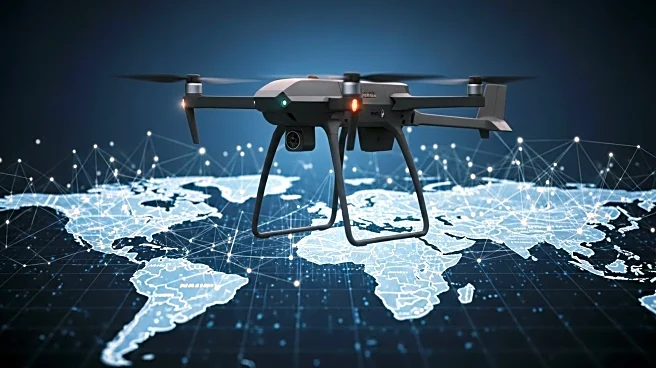What is the story about?
What's Happening?
The global counterterrorism landscape has significantly evolved since the 9/11 attacks, with threats becoming more complex, borderless, and technologically advanced. Current counterterrorism strategies require adaptation through military and intelligence tools, public-private partnerships, AI monitoring, and global diplomacy. The spread of extremist content online poses a challenge for governments and platforms, necessitating efforts to prevent potential violence. The U.S. intelligence community is undergoing restructuring, with the National Counterterrorism Center potentially being curtailed, reflecting ongoing foreign threats.
Why It's Important?
The evolution of counterterrorism strategies is crucial for addressing the increasingly sophisticated threats posed by terrorist organizations. The use of the internet and AI by these groups magnifies their capabilities, making it easier to radicalize supporters and incite violence. This shift impacts U.S. national security, requiring enhanced vigilance and adaptation of strategies to protect citizens and infrastructure. The restructuring of intelligence agencies indicates a response to these evolving threats, emphasizing the need for effective collaboration and resource allocation.
What's Next?
Future counterterrorism efforts may focus on strengthening public-private partnerships with tech platforms to manage extremist content. The U.S. may also enhance AI monitoring capabilities to detect and prevent radicalization and recruitment online. Additionally, global diplomacy could play a role in fostering international cooperation to address borderless threats. The restructuring of the U.S. intelligence community may lead to new strategies and policies aimed at countering these challenges.
Beyond the Headlines
The ethical implications of using AI in counterterrorism raise concerns about privacy and surveillance. Balancing security measures with civil liberties will be a critical challenge for policymakers. The cultural impact of ongoing threats may influence public perception and policy decisions, potentially affecting international relations and domestic security policies.















